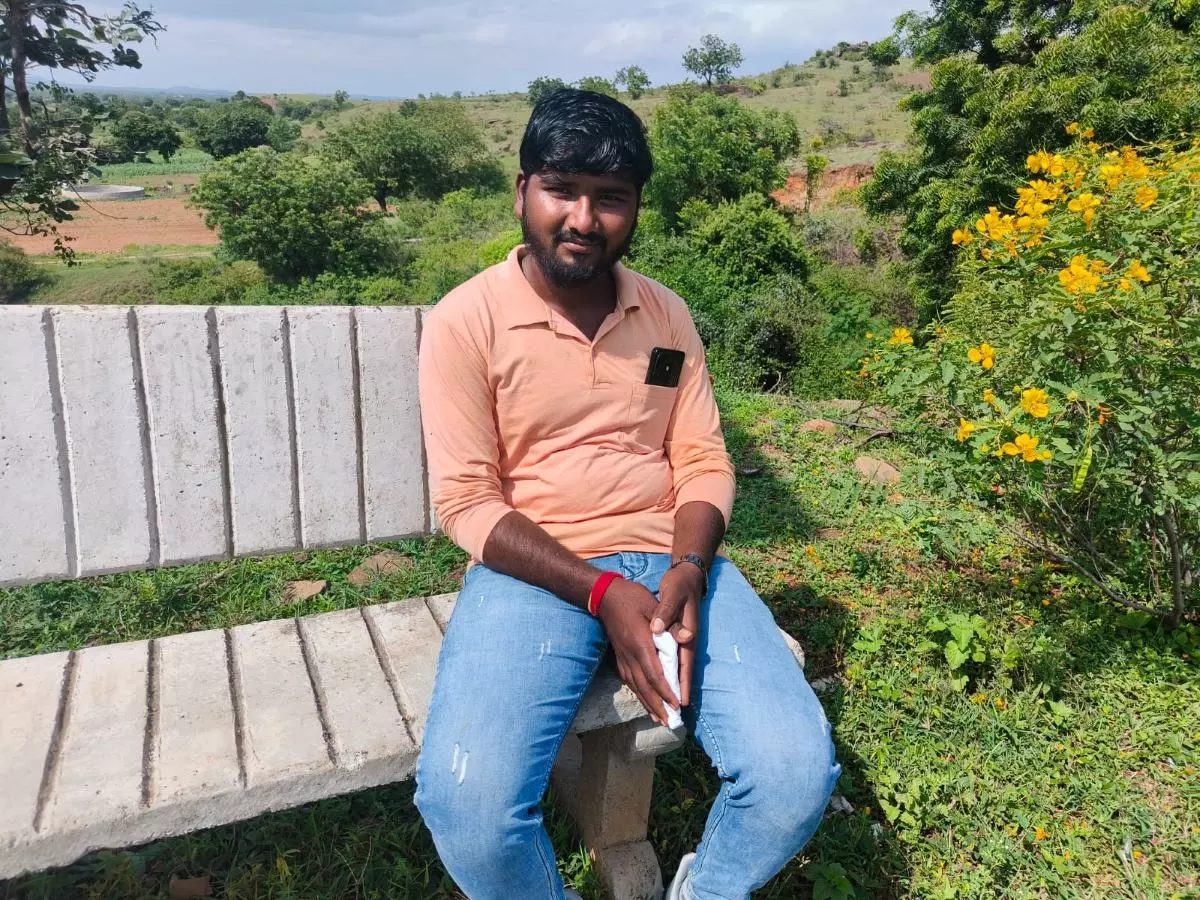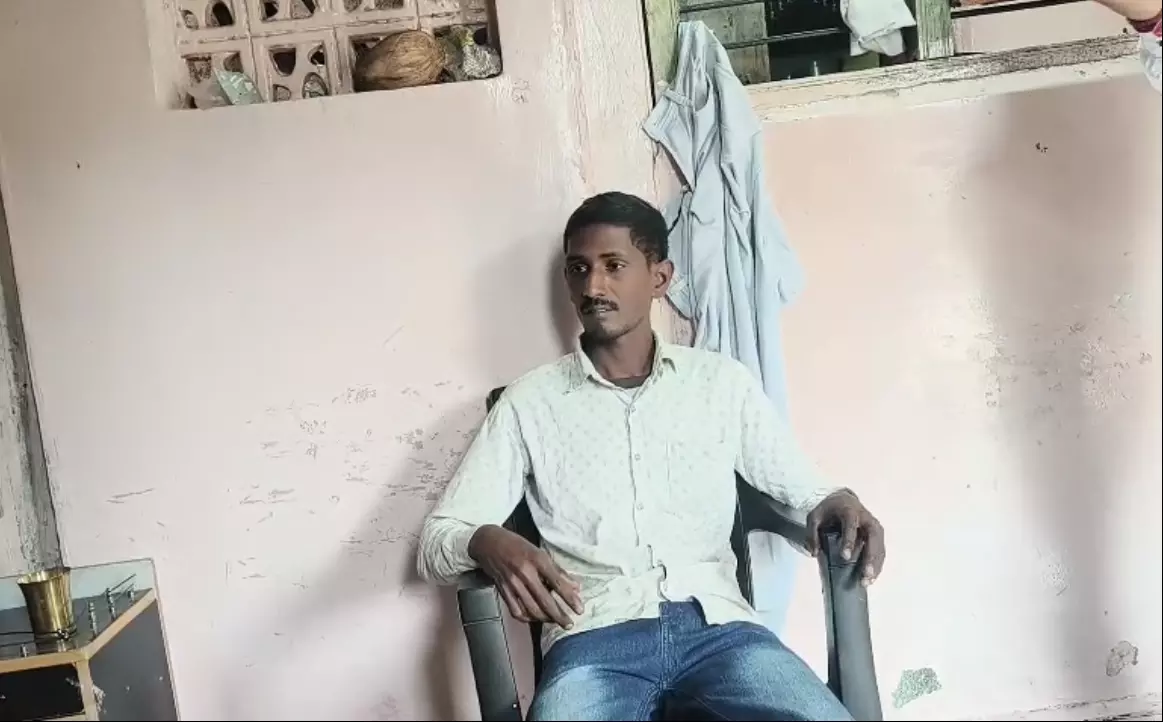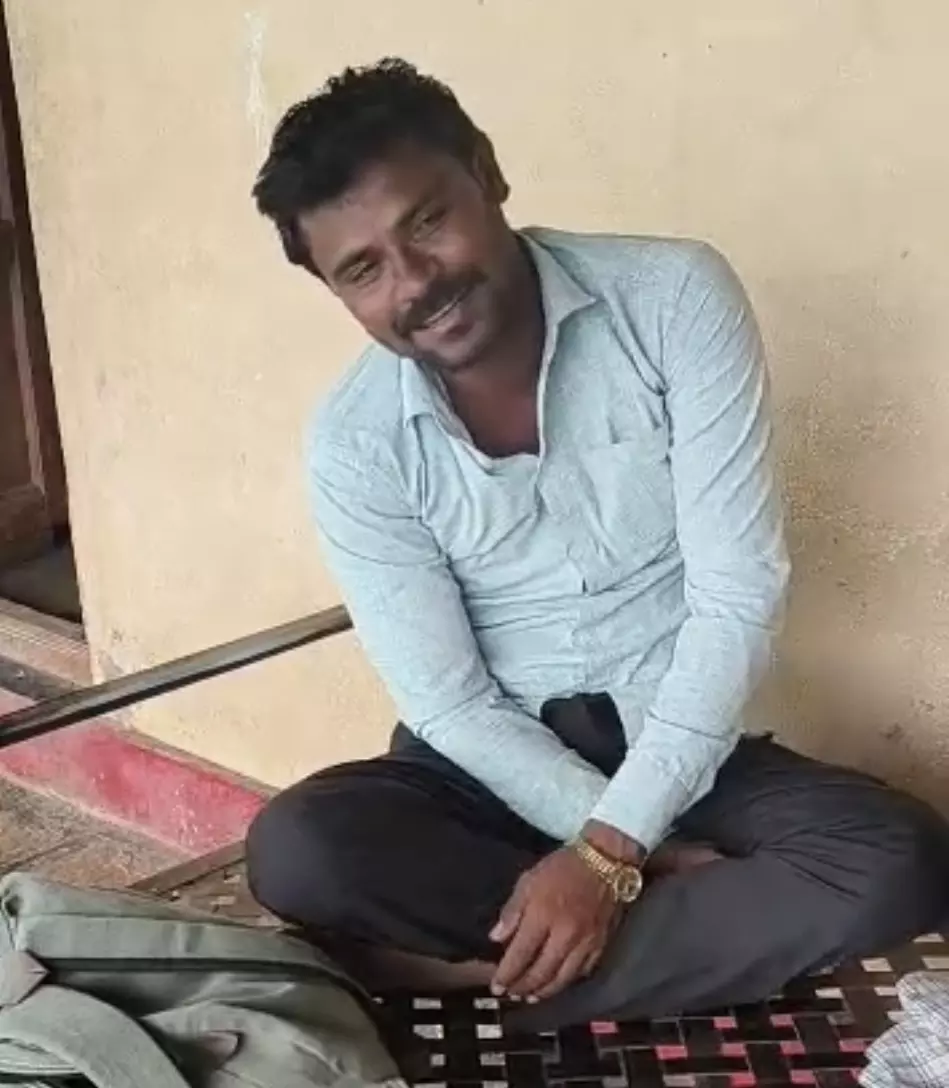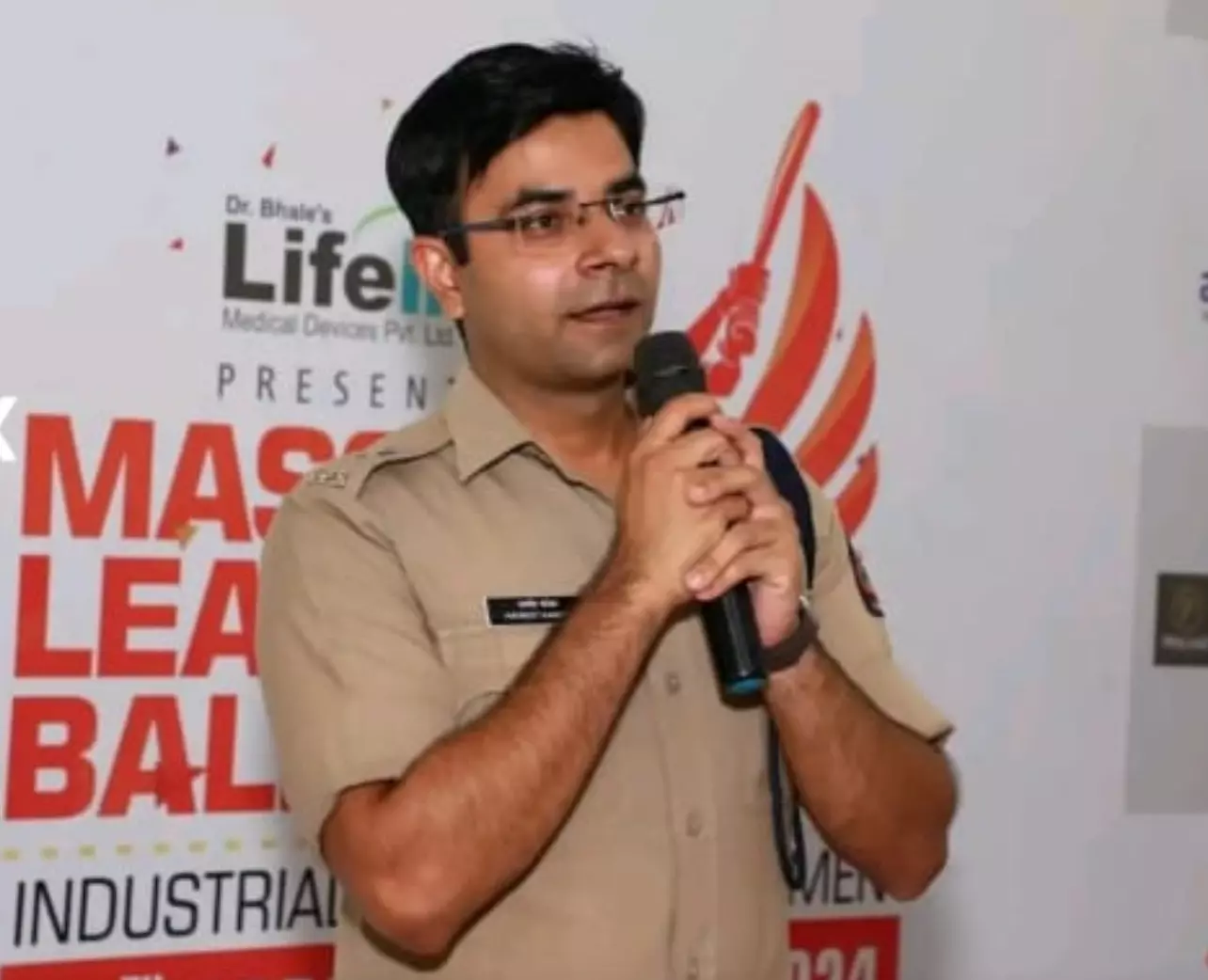
- Home
- India
- World
- Premium
- THE FEDERAL SPECIAL
- Analysis
- States
- Perspective
- Videos
- Sports
- Education
- Entertainment
- Elections
- Features
- Health
- Business
- Series
- In memoriam: Sheikh Mujibur Rahman
- Bishnoi's Men
- NEET TANGLE
- Economy Series
- Earth Day
- Kashmir’s Frozen Turbulence
- India@75
- The legend of Ramjanmabhoomi
- Liberalisation@30
- How to tame a dragon
- Celebrating biodiversity
- Farm Matters
- 50 days of solitude
- Bringing Migrants Home
- Budget 2020
- Jharkhand Votes
- The Federal Investigates
- The Federal Impact
- Vanishing Sand
- Gandhi @ 150
- Andhra Today
- Field report
- Operation Gulmarg
- Pandemic @1 Mn in India
- The Federal Year-End
- The Zero Year
- Science
- Brand studio
- Newsletter
- Elections 2024
- Events
How online gambling ruined lives of young men in Maharashtra’s Solapur and Beed
Real-money online gambling apps have devastated families across Maharashtra, pushing young men into cycles of addiction, debt and despair. The Centre’s ban on them has come as a timely intervention.

At the headquarters of the Superintendent of Police in Beed (Maharashtra), the wireless section is a room that stores all kinds of electronic hardware and spare parts needed to run a district’s police department. One can find rows of inverters kept as backup for power outages, batteries for all wireless communication, and even car batteries recovered from stolen...
At the headquarters of the Superintendent of Police in Beed (Maharashtra), the wireless section is a room that stores all kinds of electronic hardware and spare parts needed to run a district’s police department. One can find rows of inverters kept as backup for power outages, batteries for all wireless communication, and even car batteries recovered from stolen vehicles.
Eight months ago, on the eve of New Year, 35-year-old Assistant Sub-Inspector Amit Suttar, from Kokarmoha in Shirur taluka of Beed and posted at the wireless section, stepped out of his office carrying a bag and boarded an autorickshaw just outside the premises. His colleagues quietly followed him, acting on instructions from their seniors who had grown suspicious of Suttar.
Despite regular inventories, batteries and inverters had been disappearing at frequent intervals, especially when Suttar was on duty. Everyone in the department knew that he had piled up debts and was deeply addicted to online gambling. That day, when Suttar got off the autorickshaw and handed over the stolen electronic items from his bag to a shopkeeper in exchange for cash, he was caught red-handed.
He was immediately suspended for stealing from his department but managed to get out of remand within 15 days. His reputation sullied, Suttar did not mend his ways. Instead, he went on to steal motorbikes, presuming the long arm of the law would never catch up with him, since he was not directly selling the stolen bikes himself but had recruited two accomplices to do the job.

Salman Sheikh, a shepherd from Shirur, once won Rs 3 lakh, another time Rs 2 lakh in a few minutes. He ended up putting it all back, and even sold his sheep to keep playing. He now shoulders debt of Rs 10 lakh. Photo: Velly Thevar
When the Beed police were inundated with motorbike theft cases, they hardly imagined they would be confronted with the harsh reality of finding the culprit in their own department. In no time, Suttar’s two accomplices were caught in the act of selling stolen motorbikes. They revealed that they were only following the instructions of their boss, Amit Suttar.
Also read: How Raghunath Sasmal made Dahibara Aludum a part of Odisha’s culinary legacy
Suttar and many others like him in rural Maharashtra had lost all semblance of sanity as they became consumed by online rummy. Recently, a policeman from Pune was suspended after it was found that he had won prize money through a cricket betting app.
When the Government of India, through a parliamentary act, banned all forms of online gambling with money last week, the decision came a tad too late for several families in Maharashtra who had already been ruined over the past four years by the gambling addiction of their loved ones. Online gambling with real money was threatening to change the very demographics of rural India, especially in Maharashtra.
So strong was the addiction of the game that Suttar, who had spent 15 years in police service in Beed district, sold expensive inverters and batteries from his department for a paltry sum of Rs 77,000 and went on to steal and sell 21 motorbikes, specifically targeting Yamahas.
In the neighbouring district, on June 18 this year, 29-year-old Laxman Jadhav, a tractor driver from Bavi village in Dharashiv district, poisoned his wife and two-year-old child before hanging himself. Police said he was driven to the act by mounting debts and the mental stress that came with his addiction to online rummy.

Nitin Kamble, the daily wage earner who lost his savings of 15 years. Photo: Velly Thevar
In rural Maharashtra, they call it the chakri game (the roulette). For the past four years, several districts of the state have seen a rising number of young men succumbing to depression and debt after getting hooked on online gambling. The nature of the beast is such that many families do not report cases unless someone caves in and, like Jadhav, takes a drastic step. When the Superintendent of Police of Dharashiv, Ritu Khokhar, visited Jadhav’s home, she was horrified by what she saw. Speaking to the media, she said, “It raises serious concerns about the impact of online gambling on mental health and family well-being.”
Easy access to smartphones has pushed a lot of young men in rural Maharashtra toward online betting and gambling platforms, including card games like rummy. Laul in Kurduvadi, Maharashtra, is a picturesque village that falls under Solapur district. Once you veer off the main road and ask for directions to Balaji Vishnu Khare’s home, everyone can guide you there. In Kurduvadi, Balaji Khare’s story has now become part of local folklore. When young men demand their first smartphone, they are met with a cautionary warning: “Remember Balaji Khare.”
Also read: How ‘unfair pricing’ of leaves is brewing a storm in Assam’s small tea gardens
Khare, the man who metaphorically bet a farm and lost one crore rupees, is a living testimony to what has happened to thousands of young men in rural belts after being introduced to online gambling and cricket betting apps in India. Endorsed by celebrities like Salman Khan and Ajay Devgn, online gambling apps such as Junglee Rummy and Chicken Road have become a bane for parents in rural households over the past four years.
To reach 27-year-old Balaji Khare’s house, you have to travel nearly 30 minutes from the main village, crossing a rivulet and entering what locals call the raan (forest). The rains have made the narrow path slippery and slushy. On either side of the mud road lie agricultural plots. We spotted two houses amidst the farms, each at least half a kilometre from the other. The autorickshaw I was travelling in got stuck in the slush, and I had to walk the rest of the way. As one trudged through thick vegetation and farmlands, one couldn’t help but wonder: how did online gambling find its way to this remote place? And how did a young man here have access to one crore rupees?
Balaji lives in a modest house abutting the family’s large farms. He shares it with ten family members, including his mother, two brothers, and their children. All the men in the family own smartphones. In local parlance, they “live in the raan,” close to their farms. Their father had died 18 years ago of asthma. Before Balaji lost his fortune, each family member owned four acres of farmland. They cultivated sugarcane, maize, and jowar. Balaji studied until Class 8 before taking up farming. His brothers, much older than him, managed most of the agricultural work. While most of the family’s farms are located within walking distance of their home, one particular plot, belonging to Balaji, was closer to the main hamlet of Laul.

Balaji Khare, the farmer from Laul in Kurduvadi who lost Rs 1 crore. Photo: Velly Thevar
Though strategically located near the main road and city, the family decided it would be wiser to consolidate their land holdings closer to their hearth. They sold Balaji’s 3.5-acre plot at Rs 75 lakh, and deposited the money in Balaji’s account while negotiating new farmland purchases nearby. But the news of the land sale soon reached local online gambling agents, Nitin Patmase and Vaibhav Sutar. They promised Balaji the moon.
The agents told Balaji he could earn Rs 36 for every rupee invested. With Rs 75 lakh in hand, Balaji was tempted, presuming he could turn it into crores. He was given a password and an ID. In the first few days, he earned Rs 2,000. But when he started losing money, desperation set in, and he poured more funds into the app. It began with small sums. Within three years, Balaji had lost everything: Rs 75 lakh, his Rs 15-lakh tractor, and 16 cows. Initially, when he sold the cows, he told his family the money was for tractor repairs. Nobody in the household suspected his addiction.
Also read: Eviction drives in Assam’s Golaghat leave migrant Muslim families pushed to a corner
After losing it all, Balaji walked into the district collector’s office in Solapur and filed a complaint against Patmase and his coterie. While admitting responsibility for his own choices, he argued the agents had misled him. He also suspected they had rigged the software. His brothers discovered the truth only when they stumbled upon their younger sibling’s face on a news channel on YouTube. They were dumbfounded. Their elderly mother, who always had a soft spot for her youngest son, was left shell-shocked.
Eventually, Balaji sold the tractor, but after his secret came out, the family pooled money to buy it back so he could earn some livelihood. Balaji now feels upset about being singled out for unsavoury publicity. “Hundreds of young men here are also addicted to online gambling and have lost lakhs, but only I became a spectacle,” he said. He insists he went to the collector’s office because he believed the agents had rigged the game, cheating not just him but many others in his village.
The levels of online gambling addiction in rural Maharashtra were threatening to spiral out of control in some districts, forcing two MLAs — from Beed and Kurduvadi in Madha taluka — to raise the issue in the state Assembly. Abhijeet Patil of Madha in Kurduvadi near Solapur said, “I had to talk about this because the addiction levels were destabilising the social order of families.”
It was also becoming an economic crisis, upsetting the sugarcane industry. Every season, lasting upwards of four months, many couples from backward districts like Beed migrate to the water-fed western parts of Maharashtra to work in sugarcane fields, earning around Rs 2.5 lakh per person. In their absence, youngsters left behind at home often fell prey to online gambling, siphoning off their parents’ hard-earned wages.

Navneet Kanwat, Beed Superintendent of Police, who banned all kiosks and online gambling in his district.
Agents had set up shop across Maharashtra, roping in those on the fringes. Beed’s Superintendent of Police, Navneet Kanwat, who took charge six months ago, got all online and offline gambling kiosks shut down. “I wanted to change the perception that Beed is Bihar,” he said, referring to the district’s violent reputation. In several villages across Maharashtra, including Beed, sarpanchs had been killed over money disputes, adding to the infamy.
For 31-year-old Nitin Kamble from Shirur near Beed, the crackdown came as a relief. “Every time I wanted to give up, the agents would coerce me into playing again,” he recalled. The agents controlled the master IDs and passwords, and gaming apps paid them 40% of the pickings. Kamble, who had dropped out of school in Class 9, had worked for 15 years as a labourer in sand trucks and utensil companies. He blew his life savings on a game of online Bingo. The lure came from his neighbour, Munna Baba Sheikh, who once won Rs 18 lakh in a single night playing online roulette. “That jackpot was my inspiration,” Kamble said.
But Kamble’s dreams soon soured. When his debts spiralled out of control, creditors began showing up at his doorstep, exposing his secret to the family. He had run up debts of more than Rs 10 lakh, of which he has managed to repay over Rs 7 lakh. After his elder brother died of alcoholism at 33, Kamble realised he couldn’t afford to slip back; his younger siblings needed him. He handed over his smartphone to his sister to cut temptation.
Twenty-year-old Salman Sheikh, a shepherd, also from Shirur, walked down from a green hillock where he had been grazing his 50 odd sheep with his grandfather to share his story. He comes from a fairly stable financial background; every member, from his mother to his siblings, contributed through odd jobs. But like Kamble, Salman too was drawn by Munna Baba’s fabled quick fortune. “I once won Rs 3 lakh, another time Rs 2 lakh in a few minutes,” he said. “But I ended up putting it all back, and even sold my sheep to keep playing.” He now shoulders debts of Rs 10 lakh that he had borrowed.
Another young man, also named Salman and also from Shirur, took loans from local lenders and lost Rs 9 lakh in just 15 days. His parents, daily-wage construction labourers, couldn’t fathom why he kept demanding money. When his mother had no money to fund his addiction, the 22-year-old even attempted suicide.
Over the past three years, online gambling platforms and fantasy sports apps like Dream11 have completely changed the way working-class men and youth look at life or view money and success. Even those gainfully employed, lured by “quick wealth,” are drawn in. When Somnath Zende, a police sub-inspector posted in Pune district, won Rs 1.5 crore on Dream11 recently, his superiors suspended him for setting a bad example for the force.
On August 21, while passing The Promotion and Regulation of Online Gaming Bill, 2025, the Centre called it “a landmark move to shield citizens from the menace of online money games.” The legislation, it said, aims to “curb addiction, financial ruin, and social distress caused by predatory platforms thriving on misleading promises of quick wealth.”
Also read: How Hindutva’s war on religious conversion exposes BJP’s Christian dilemma in Kerala
“It reflects the government’s resolve to safeguard families while guiding the digital economy towards safe and constructive growth. The World Health Organization classifies gaming disorder as a health condition in its International Classification of Diseases, describing it as a pattern of play marked by loss of control, neglect of other daily activities, and persistence despite harmful consequences. This highlights why decisive action is necessary in India as well,” the Centre added.
On the other end of the spectrum, the ban has also hit the shadowy agents who thrived off them. A 27-year-old newly married man from Shirur, who once worked as an agent recruiting clients into online gambling, said, “Initially, I started out playing the game, but the win ratio was so much about luck that I realised referral was the only sure winner. For every new person who signed up under my partnership code, I got 10 percent. And if my referral managed to win any amount — big or small — I got 40 percent. It was a win-win for me, so I stopped playing the game and became a full-time agent, pushing more young men to register under my code.”
“But there was a lot of pressure from my wife’s family to quit being an agent. They wanted me to take up stable employment, which I haven’t managed so far. Even before the Government of India’s ban, the diktat of Beed’s new Superintendent of Police was a warning. When he took over six months ago, all my friends who were agents shut shop, and I followed suit. I had big plans as an online gambling agent and had even made contacts with roughnecks, just in case. But the new SP of Beed put paid to all of that. The government’s ban has only reinforced my unemployed status,” said the man, who did not wish to be named.
